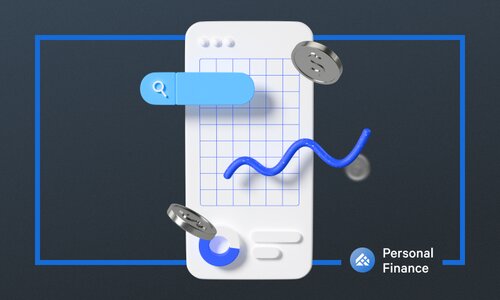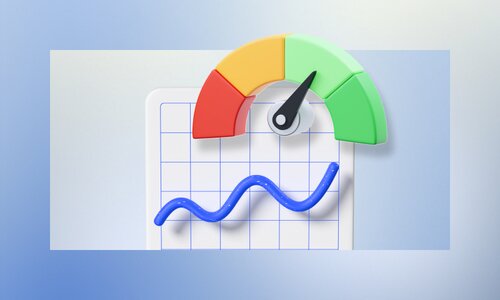Establishing good credit is essential for managing your personal finances and qualifying for lines of credit. After all, it’s how you get the most competitive interest rates and terms when applying for a new credit card, auto loan, or home loan. But what exactly makes up a good credit score?
This article will dive into the world of credit scores and uncover what you need to know to ensure yours is the best it can be.
Why Do We Have Credit Scores?
Businesses have long needed a way to attract customers to buy their goods and products. However, not everyone always has the cash on hand to purchase essentials like furniture, business equipment, or a home.
To keep goods moving, retailers would offer installment loans. However, they needed to establish trust with their buyers and ensure they’d be paid back. The retailers would collect a customer’s information and submit it to a local credit bureau, which would track their payment history and debt. By the 1960s, there were over 2,000 of these bureaus.
Credit scores were first introduced in the 1950s by the Fair Isaac Corporation (FICO). They used various reported factors to assign a score to a borrower. Since then, credit scoring has become an indispensable tool for lenders to assess a borrower’s level of risk.
The Fair Credit Reporting Act, established in 1970, moved to regulate how consumers’ personal and lending information was collected and reported. It’s evolved several times since then.
It took until 1989 to create a consolidated credit scoring model to evaluate all consumers’ data. When Fannie Mae and Freddie Mac started requiring their mortgage applicants to submit a FICO score, the model became more widespread in the credit decision-making process.
How Your FICO Score Is Determined
Today, the FICO score is one of the most widely used measures of a borrower’s creditworthiness. It evaluates how you use money and considers factors like payment history, credit utilization, the mix of credit accounts you have, and the number of new accounts opened.
FICO scores range from 300 to 850 and are based on the information in your credit report. The agency evaluates five critical factors to determine your score and weighs them based on their relevance.
- Payment history: Paying on time accounts for 35% of your score
- Credit utilization: The total amount of credit or debt you have against your total available credit limit is 30% of your score.
- Credit history: How long you’ve had lines of credit is 15% of your score
- New credit: 10% of your score is how often you apply for new lines of credit
- Credit mix: Your different credit products account for 10% of your score. These are your credit card cards and loans.
What Is a VantageScore?
The FICO model is not the only credit scoring in use today. The VantageScore 3.0 model was created in 2006 by the three major credit monitoring bureaus, TransUnion, Equifax, and Experian. It uses a different set of criteria than FICO to score borrowers on a range from 300-850 points to determine creditworthiness and the likelihood that the borrower will repay their debts.
VantageScore credit scores differ because they express the various factors as “influential” on your credit scores. However, most of the criteria are the same as the FICO model.
Like a FICO score, your payment history is the most critical factor. The credit utilization rate is highly influential, while recent credit behavior and amount of debt are less influential. The actual percentages are slightly different, as your payment history accounts for 40% of your score, while recent credit applications are 5%.
One advantage of the VantageScore is that it takes less time to establish a score. You can have a score within 1-2 months of opening a credit account, while a FICO score requires six months of history. Some other differences that impact its scores:
- Late mortgage payments weigh more than other late payments, which can drop the score
- Any rate-shopping on a loan or line of credit must be done within a 14-day window versus 45 days for FICO
- Has allowances for consumers impacted by a natural disaster
Who Determines My Credit Score?
In the United States, rates are calculated by three major credit bureaus: Experian, Equifax, and TransUnion. Each bureau collects data from your creditors to determine your credit score. The good news is that you receive a free credit score report once a year through AnnualCreditReport.com.
Your credit score at all three bureaus can be slightly different as they tweak their scoring models. They also may not have accurate credit data on you, which we’ll discuss below. Finally, not all creditors report activity to all three bureaus, which can influence your credit utilization and payment history.
What are the Benefits of Having a Good Credit Score?
A good score can be the key to getting favorable loan terms when you want to make major purchases, like for a car or home. You’ll gain lower interest rates and fees on car loans or mortgages. Credit card issuers will extend their credit card programs’ better rates and reward offers. It makes it easier to open new lines of credit, like if you want to renovate your home with a home equity line of credit (HELOC).
Besides lending benefits, good credit can help you secure a job, a lease, or favorable rates on insurance products or telephone services.
What Is Considered a “Good” Credit Score?
The FICO credit score is a three-digit number that ranges from 300-850. Generally speaking, good credit is considered to be a score of 670 or above on this scale. That’s good enough to qualify for most consumer loans and competitive interest rates.
However, this is not a “magic number” where you are guaranteed exceptional terms on your line of credit. Every situation and lender is different. What is acceptable for your auto loan lender may not be the same for a mortgage lender.
Typically, the FICO scores break down as follows:
- 800+: Excellent
- 740-799: Very Good
- 670-739: Good
- 580-669: Fair
- 579 & under: Poor
If you have fair credit–a score below 670–you can still be approved for some types of credit, but not all. You may get stuck with higher interest rates or fewer loan products.
Around 67% of Americans carry a Good or better FICO Score, says Experian. The FICO average credit score in 2021 was 714.
For VantageScores, the credit ranges are similar but slightly different, given the changes in credit factor weight.
- 850-781: Excellent
- 780-661: Good
- 660-601: Fair
- 600-500: Poor
- 499-300: Very Poor
Around 61% of Americans have a good or better VantageScore, according to Experian. The average VantageScore in February 2021 was 698.
Because of these different credit score ranges, you could have an “excellent” FICO score but a “good” VantageScore.
How Can You Achieve the Best Credit Score?
Bad credit isn’t the end of the world. Establish good financial habits and stick to them. Start by opening a credit account, such as a credit card. You can’t create a credit history without a line of credit.
Keep a line of credit open, as it boosts the average age of your accounts. The length of credit history does have an impact, even if small, on your score.
Do what you can to avoid missed payments, as this weighs heavily on both the FICO and VantageScore models. Don’t run up too much credit card debt or open many new accounts simultaneously.
Find the right balance in your credit utilization ratio. This means balancing different types of credit accounts with how much total credit you are using. For example, suppose you have a credit card with a limit of $5,000. In that case, maxing out your card for $5,000 means you’ll carry a high credit utilization ratio. This can negatively impact your score. Manage your credit card balances so they stay at a reasonable rate, and you can always pay off your debt.
Maintaining a consistent payment history and staying below 30% of your total credit limit are two effective ways to build an excellent credit score over time.
Be active in managing your personal finances. Check your credit report regularly for accuracy and to look for signs of fraud. You can also dispute any errors with the credit bureaus as needed. This regular check is also a way to ensure you’re not a victim of identity fraud, which can impact your financial health and credit history for years.
How Can You Improve Your Credit Score?
If you’re serious about improving a poor credit score, consider enlisting help from a reputable financial advisor or credit counseling service. They can provide personalized advice on how to get your finances in good shape while helping you increase your credit score.
Making good decisions with your money is the key to achieving good credit. Focus on paying bills on time, reducing debt, and building a mix of loans and credit cards. With patience and determination, you can achieve a higher credit score. It just takes time and consistent money management.
Let’s say you’re one of the 26 million Americans considered “credit invisible” because of a lack of credit history. Some credit bureaus are now finding ways to help these individuals establish a credit history. For example, Experian Boost allows individuals to add utility bills or monthly subscription payments to their credit file, so lenders can see their history of making on-time payments.
Who Uses Credit Scores?
Various lenders use your credit score to determine your creditworthiness, decide how much money to lend you, and what terms they will offer you. These include mortgage institutions, auto lenders, and personal lenders.
Insurance companies may also use credit scores to set premiums. Landlords may include it in their tenant screening process to assess if prospective tenants will meet their rent obligations. Utility companies and telephone service providers also run credit checks. Some government benefit programs require a credit report.
Whenever a lender or company requests your credit report, this is called a hard inquiry. It shows you’re attempting to pull a line of credit. Too many of these inquiries can negatively impact your score. However, you are allowed and should shop around for the type of loan that works best for your purchase. You’ll have a window where multiple inquiries will count as one inquiry, so it doesn’t work against your score–45 days for FICO and 14 days for VantageScore.
Additionally, employers may review a job applicant’s credit report as part of their background check, but they will need your permission.
Credit Scores and Real Estate
When it comes to buying a home, your credit score will be one of the deciding factors in whether you qualify for a loan and what terms they offer you. The highest credit scores can secure the best possible rates, terms, and maximum limits.
Don’t think a poor credit score means homeownership is out of reach. Various loan products are available for potential borrowers with various credit scores and savings. Or you can make things easy and get started investing with Arrived with as little as $100. Dream big and find your first investment properties today.








